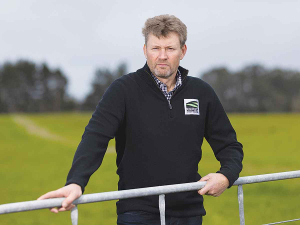Farmers are concerned about a three-year cap on temporary work visas announced by the Government this week.
Federated Farmers national board member Andrew Hoggard says in many rural areas New Zealanders are not available to employ; often when farmers seek applicants from Work and Income NZ no-one is put forward for the job.
"In that instance I’m concerned about the prospect of a migrant being forced to leave after three years, after they have worked hard to develop a core set of skills, just for the farmer to have to employ another migrant because there were no NZers available," Hoggard says.
"It may be that over the course of three years employment on a farm the migrant’s salary is increased to a point where the cap will not be enforced, but we have to work with Immigration NZ on that point."
Changes announced by Immigration Minister Michael Woodhouse include the introduction of a maximum duration of three years for lower-skilled and lower-paid essential skills visa holders, after which a minimum stand-down period will apply before they are eligible for another lower-skilled temporary work visa.
Woodhouse says the changes are designed to better manage immigration and improve the long-term labour market contribution of temporary and permanent migration.
Hoggard says most of the changes are good, providing continued access to migrant labour where it’s needed.
"Farmers -- especially in the dairy industry -- will continue to have access to migrant workers in situations where there are insufficient NZers available to fill vacancies," Hoggard says.
“Immigration is vitally important to agriculture, which grapples with increasing urbanisation taking available labour away from rural areas. In the foreseeable future farms will continue to rely on migrants for part of their workforce even though there are initiatives underway to attract more Kiwis into agriculture sectors.
"Finding enough NZers is a tough nut to crack because we are not just asking them to come and work on a farm, often in a remote location, but also in many cases to move away from their families to rural areas where they have no contacts or support networks."
Immigration is putting pressure on Auckland infrastructure but in the rural areas the opposite is true, Hoggard points out.
Feds welcomes the changes proposed to the skilled migrant category for residency. The current skilled migrant occupation classification is a blunt instrument that takes no account of highly skilled farm employees and makes it virtually impossible for them to achieve residency.
"The upper salary threshold of about $73,000 will mean some farm managers who are highly sought after, and therefore highly paid, will at least be able to entertain the prospect of long term residency. This new initiative will greatly benefit the migrants and the agricultural sector,” Hoggard says.
"We are also pleased with the announcement of the one-off pathway to residency for some South Island employees, as previously signalled by the minister in 2015. This will apply to many dairy farm workers who have contributed to the industry and the community for a number of years, but are not yet able to claim skilled migrant category status.”











